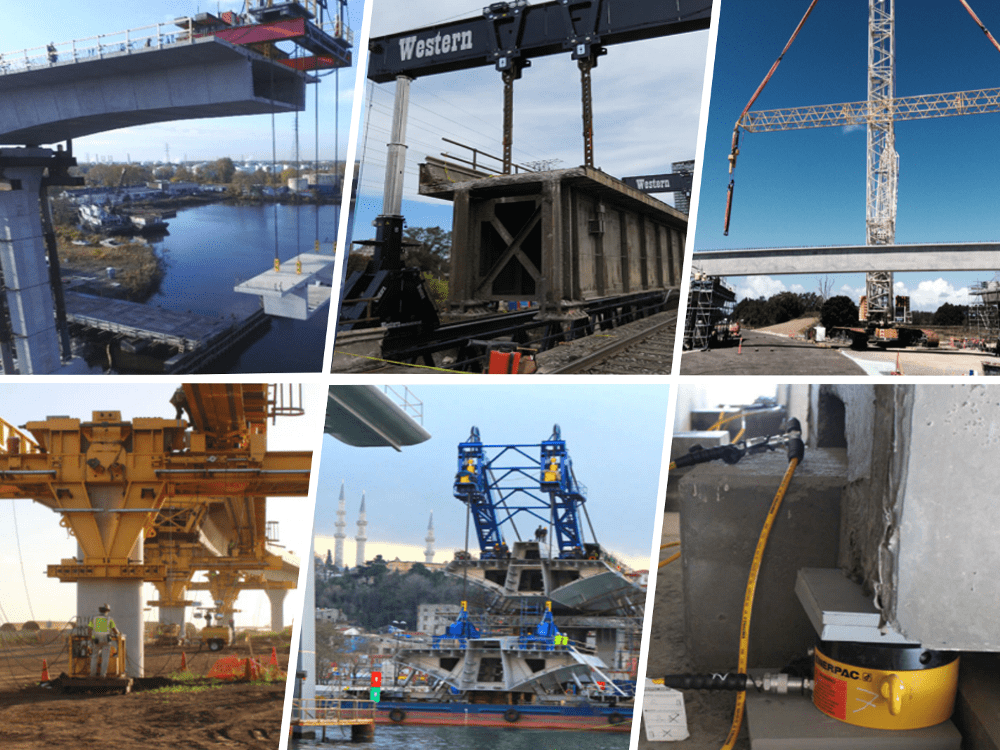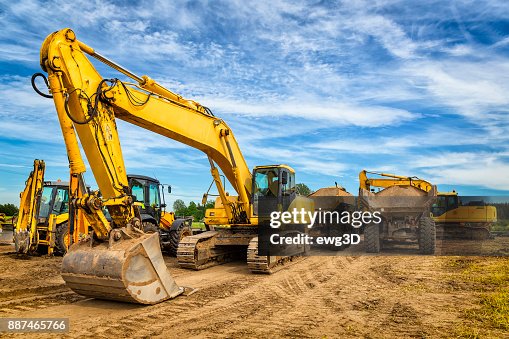Construction Equipment Rentals in Tuscaloosa, AL: Everything You Need for Your Job Site
Construction Equipment Rentals in Tuscaloosa, AL: Everything You Need for Your Job Site
Blog Article
Checking Out the Financial Conveniences of Renting Building Equipment Compared to Having It Long-Term
The choice between leasing and having construction equipment is pivotal for economic management in the sector. Renting deals prompt cost financial savings and operational versatility, permitting firms to designate sources a lot more successfully. Recognizing these nuances is crucial, especially when considering how they straighten with specific project needs and economic techniques.

Price Comparison: Leasing Vs. Having
When reviewing the financial ramifications of owning versus leasing building and construction tools, a complete expense contrast is necessary for making educated choices. The option in between renting out and having can dramatically influence a company's bottom line, and comprehending the associated expenses is crucial.
Renting building tools normally involves lower in advance prices, permitting organizations to assign funding to other operational needs. Rental arrangements often consist of adaptable terms, enabling companies to gain access to advanced equipment without long-term dedications. This flexibility can be specifically helpful for temporary jobs or fluctuating workloads. Nonetheless, rental expenses can accumulate with time, potentially going beyond the expense of possession if equipment is needed for an extensive period.
Alternatively, owning construction devices calls for a substantial preliminary financial investment, in addition to ongoing costs such as depreciation, insurance policy, and funding. While ownership can cause long-lasting financial savings, it additionally links up capital and may not offer the exact same level of adaptability as renting. Additionally, owning tools demands a dedication to its application, which might not constantly line up with job demands.
Inevitably, the choice to rent out or possess must be based on a detailed analysis of particular project needs, monetary capability, and lasting tactical goals.

Upkeep Expenses and Duties
The option in between renting and possessing building devices not just includes economic considerations but also includes ongoing maintenance expenses and obligations. Having devices calls for a substantial dedication to its maintenance, which consists of routine evaluations, repair work, and potential upgrades. These duties can promptly gather, causing unforeseen costs that can strain a spending plan.
In comparison, when leasing equipment, upkeep is commonly the duty of the rental business. This plan allows specialists to avoid the financial worry connected with wear and tear, along with the logistical difficulties of scheduling fixings. Rental contracts frequently consist of provisions for upkeep, indicating that specialists can focus on finishing projects as opposed to worrying regarding devices condition.
In addition, the diverse range of devices readily available for rent makes it possible for companies to select the most current versions with advanced technology, which can improve efficiency and performance - scissor lift rental in Tuscaloosa, AL. By deciding for rentals, companies can stay clear of the lasting liability of devices devaluation and the linked upkeep headaches. Inevitably, assessing upkeep expenses and responsibilities is important for making an educated decision about whether to rent or own building and construction devices, dramatically influencing general project expenses and functional effectiveness

Devaluation Effect on Possession

A significant factor to take into consideration in the choice to own building and construction equipment is the impact of devaluation on total possession expenses. Devaluation represents the decrease in worth of the tools over time, influenced by aspects such as use, wear and tear, and improvements in aerial lift rental in Tuscaloosa innovation. As devices ages, its market price decreases, which can significantly affect the proprietor's financial setting when it comes time to trade the equipment or offer.
For construction firms, this depreciation can translate to substantial losses if the devices is not made use of to its greatest capacity or if it lapses. Proprietors must make up devaluation in their monetary estimates, which can result in greater total costs contrasted to renting out. Furthermore, the tax ramifications of depreciation can be complex; while it may offer some tax benefits, these are usually offset by the fact of decreased resale worth.
Ultimately, the worry of depreciation highlights the relevance of understanding the lasting financial dedication included in owning construction tools. Business have to very carefully evaluate just how typically they will certainly utilize the tools and the prospective economic impact of depreciation to make an educated decision regarding possession versus renting.
Economic Flexibility of Leasing
Renting out construction tools offers considerable economic flexibility, enabling firms to assign sources extra effectively. This adaptability is especially critical in an industry defined by rising and fall project demands and differing work. By opting to lease, services can stay clear of the substantial funding investment required for buying devices, maintaining cash flow for other operational requirements.
In addition, renting out equipment enables business to tailor their devices selections to details project requirements without the long-term commitment related to possession. This indicates that organizations can conveniently scale their tools supply up or down based upon current and anticipated project needs. Consequently, this flexibility reduces the risk of over-investment in machinery that may end up being underutilized or out-of-date in time.
An additional financial benefit of leasing is the capacity for tax benefits. Rental payments are frequently thought about overhead, allowing for immediate tax obligation reductions, unlike depreciation on owned and operated tools, which is topped a number of years. scissor lift rental in Tuscaloosa, AL. This immediate expense acknowledgment can additionally enhance a company's cash money setting
Long-Term Job Considerations
When evaluating the lasting requirements of a building business, the choice between having and renting tools ends up being much more intricate. Secret factors to take into consideration consist of project period, frequency of usage, and the nature of upcoming tasks. For tasks with prolonged timelines, purchasing devices may appear beneficial as a result of the possibility for reduced overall prices. However, if the tools will not be made use of continually throughout tasks, possessing may cause underutilization and unnecessary expense on maintenance, insurance policy, and storage.
The construction industry is evolving rapidly, with brand-new tools offering boosted performance and safety features. This adaptability is specifically helpful for services that manage diverse projects calling for various types of equipment.
In addition, economic stability plays a vital role. Possessing tools typically entails considerable capital expense and devaluation worries, while renting permits for even more predictable budgeting and cash money flow. Ultimately, the option between owning and renting out ought to be straightened with the calculated objectives of the building and construction organization, taking into consideration both anticipated and existing project needs.
Conclusion
To conclude, leasing building and construction devices supplies considerable economic advantages over lasting ownership. The lessened upfront expenses, removal of upkeep responsibilities, and evasion of depreciation add to boosted cash circulation and economic versatility. scissor lift rental in Tuscaloosa, AL. Moreover, rental repayments offer as immediate tax reductions, further benefiting service providers. Ultimately, the decision to lease instead than own aligns with the dynamic nature of building and construction tasks, enabling versatility and accessibility to the latest devices without the monetary worries related to ownership.
As tools ages, its market worth diminishes, which can substantially influence the proprietor's economic placement when it comes time to market or trade the tools.
Renting out building and construction devices uses considerable monetary versatility, enabling companies to assign resources more efficiently.In addition, renting out tools makes it possible for business to tailor their equipment choices to specific task needs without the long-lasting commitment associated with possession.In verdict, leasing construction equipment supplies significant monetary advantages over lasting possession. Inevitably, the choice to rent rather than very own aligns with the dynamic nature of construction tasks, enabling for adaptability and accessibility to the most current devices without the financial worries connected with ownership.
Report this page